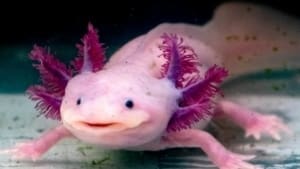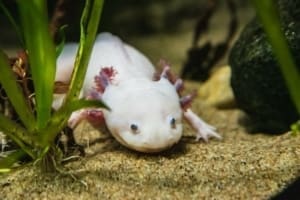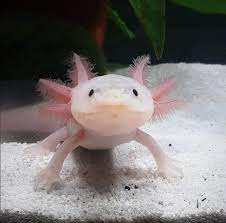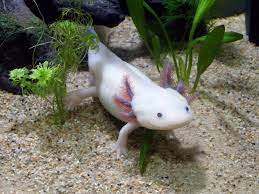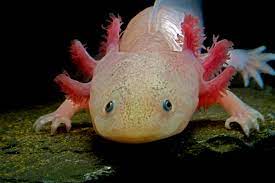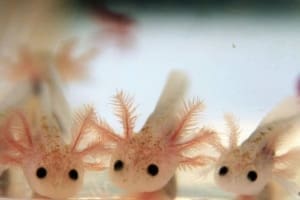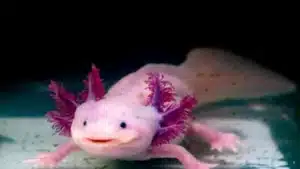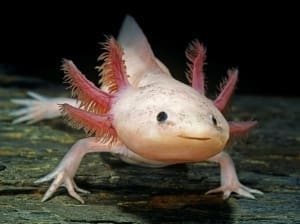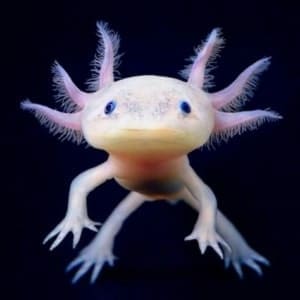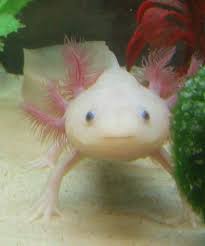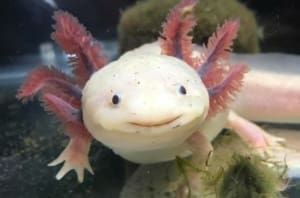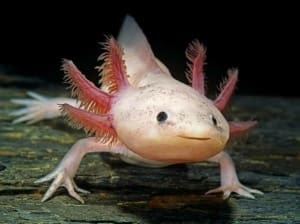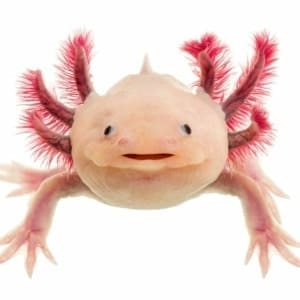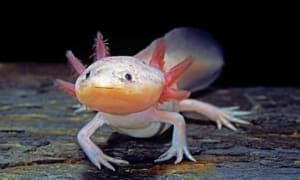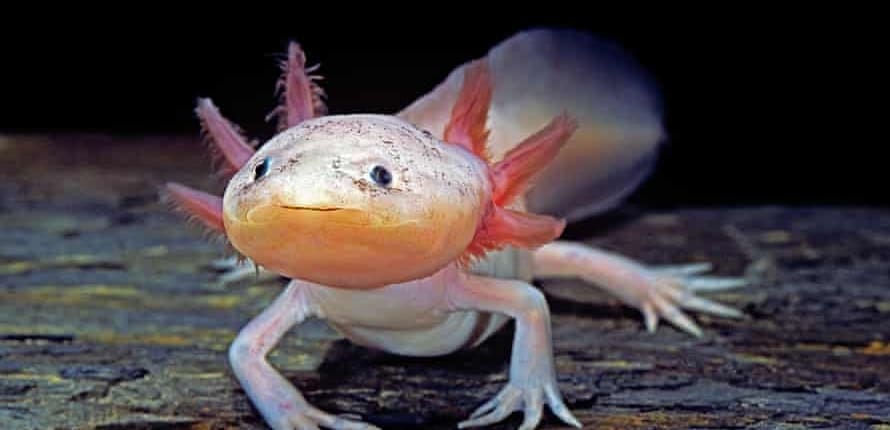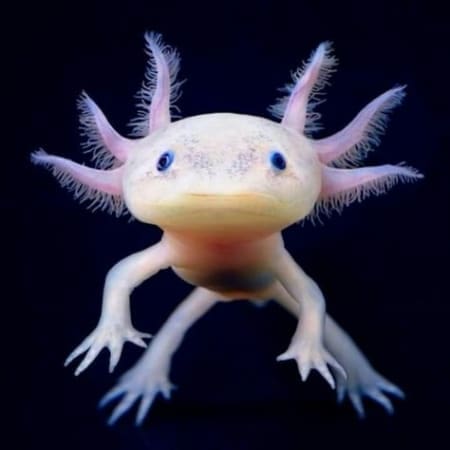Axolotl Diet
They are carnivores and enjoy eating aquatic insects, small fish, worms, and larvae. They do are not very fast, so they lure prey in through the suction of their mouths.
Axolotls enjoy a variety of small amphibians that originate from Mexico also. This includes bloodworms, pieces of beef heart, frozen brine, live nightcrawlers, mysis shrimp, and red wigglers. Food pellets are a great choice also because they supply protein and well as nutrients.
As adults, you can expect them to eat about three nightcrawlers or one teaspoon of bloodworms every other day. Beef and shrimp work as occasional treats. Baby axolotls eat four small worms a day while they grow, but as they get older they tend to eat less.
It is important to remove any uneaten food so it does not dirty the water.
Axolotl Care
Before purchasing your very own axolotl for sale, be sure to read Cb Reptile’s Axolotl care sheet to learn how to care for an axolotl!
- Axolotl
- baby axolotl tank mates
- axolotl breeding
- Baby Axolotl
- Axolotl for sale
- baby Axolotl Fish
- Axolotl Fish for sale
- Baby Axolotl for sale
- axolotl diet
- baby axolotl origin
- axolotl tank setup
- Baby axolotl fish for sale
- axolotl care 2021
- baby axolotl water requirements
- axolotl food
- how to care for an axolotl
- axolotl size
- axolotl care sheet
- baby axolotl care
- axolotl care
- What to feed an axolotl
- axolotl behavior
- baby axolotl habitat
- axolotl tank size
- Baby axolotl water filtration
- axolotl lifespan
- axolotl tank
Axolotl Origin
They originate from the freshwaters of Lake Chalco and Xochimilco in the Valley of Mexico. They got their name from the Aztecs who settled in the valley during the thirteenth century. “Axolotl” comes from the name of their god of fire and lightning, Xolotl.
Axolotl Lifespan
In the wild, axolotls live for five to ten years, but if properly cared for in captivity, they tend to live anywhere from ten to fifteen years!
Axolotl Fish Behavior
They usually spend most of their time alone and in solitary. They are most active during the nighttime and can be seen burrowing under mud and aquatic vegetation during the day. If your axolotl is not eating or if its gills are curled forward, it may be stressed. An easy way to prevent or fix this problem is by fitting a spray bar or flow-spreading outlet in their tank.
Baby Axolotl Tank
Axolotls are fully aquatic species, so they do not need any land in their habitat.
The temperature of the water should stay between 60 and 65 F. Tanks should be kept far from air vents or direct sunlight. If the room temperature is not cold enough, water cooling systems are available.
Fine sand works great as a substrate. Hiding spots are important for axolotls; caves, pots, and live plants work perfectly. No special lighting is required for axolotls.
They do not like strong currents. A spray bar outlet for the pump to diffuse the water pressure will need to be installed. An air stone is required to oxygenate the water too.
Tank Size
They require a tank that is at least 15-20 gallons. The tank must also have a secure lid because axolotls are known for trying to jump out of their tank. Your tank should increase by ten gallons for each axolotl added. A dry land area isn’t needed because these animals are fully aquatic. So is better for your tank to be wide, rather than tall.
Water Filtration
Pure water can be provided by the use of an aquarium pump with an output-reducing spray bar and weekly thirty percent water changes. Freshwater testing kits are useful to check water pH and parameters. Water parameters are crucial to ensuring your pet axolotl remains healthy.
If you are thinking about using tap water, be sure to use an amphibian-safe water conditioner to remove chlorine. A pH of around 6.5 to 8 should be maintained. But there should be no ammonia, nitrates, or nitrite.
Axolotl Tank Mates
Unlike most species of fish, axolotls do not usually get sad or stressed by being alone and in some cases, would rather be alone. If you want an addition to your axolotl’s tank, your best bet is to purchase another axolotl.
Axolotl Fish Size
They grow to be anywhere from 6 to 18 inches in length, but the average is 7 to 9 inches. Full-grown axolotls typically weigh between 5 and 12 ounces.
Females are usually bigger than their male counterparts and you can help distinguish them because males have large vents and vertical grooves.
Axolotl Breeding
Their breeding season is from March to June. And during it, females and males seek out each other to mate, but other than this, they tend to not show much interest in each other.
Baby Axolotl for sale
Looking for a beautiful captive bred baby axolotl for sale? You’ve come to the right place! Our baby axolotl for sale online are some of the nicest and 100% captive bred specimens in the world! With a real biologist on-site, our amazing stock of beautiful captive bred axolotl and baby axolotl for sale is amazing!
axolotl for sale near me
With overnight shipping, our baby axolotl for sale near me will be to your door the next morning! We ship ALL of our baby axolotl via Fedex or UPS overnight for next morning arrival. Selling only captive bred specimens insures you will have a healthy, live arrival guaranteed ax sent right to your doorstep. Be aware all live delivers will require a signature upon arrival as part of our health and live arrival guarantee.
- Display 21 Products per page
-

Axolotl for sale
$144.00 – $199.00 Sale!Select options This product has multiple variants. The options may be chosen on the product page
